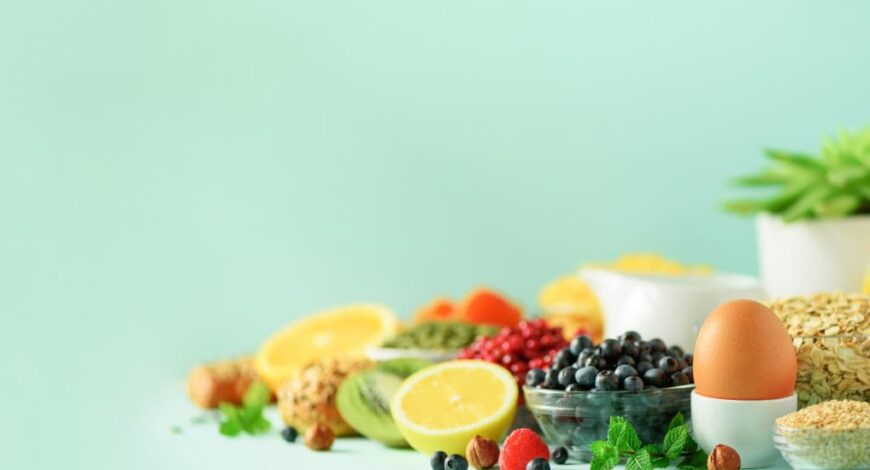Organic food is widely accepted among producers, consumers and environmentalists. Organic farming remains the main alternative to conventional agriculture, which produces a lot of pesticides, and does not hesitate to preserve the soil.
There are many reasons to eat organic, whether it is to help protect the environment, to change our relationship with food or to anchor us in our territory.
Why should we switch to organic food?
In supermarkets, the shelves of organic products are multiplying. Of course, when shopping, we wonder why these organic products are also on the shelves of stores. Eating organic is particularly beneficial, for many reasons, and the main reason is that eating organic is healthy. Why?
It’s very simple because all organic products contain much less pesticides, and more heavy metals. Thus, having an organic diet will allow you to eat healthy. Many studies confirm these claims.
Just to give you an idea, in conventional agricultural products, you’re 18 times more likely to find pesticide residue than in organic products. As you can imagine, pesticides are not good for your health and your body, so if you switch to an organic diet, you will do your body good.
Eat more tasty food
You may not know this, but organically grown foods have more flavor and taste. This has been scientifically proven. You may not notice it for all foods, when it comes to fruits and vegetables, the difference in flavor is really spectacular. You’re probably wondering why.
The reason is simple: organic fruits and vegetables are harvested at full maturity, to give them time to absorb the aromas that will bring out their flavors. Also, because organic foods grow in full sun, they can draw water from the soil, whereas conventional agriculture does not necessarily do that because most soils are killed by chemical fertilizers. Thus, organic products contain less water, more flavor, more nutrients, more vitamins, more minerals, vitamins and more antioxidants. In other words, it is much better for our health!
Organic food is not reserved for the rich
A lot of people don’t eat organic food because they think it will be more expensive. Of course, organic farming requires more work, more time and more labor, but that doesn’t mean that organic products are overpriced. Of course, prices are always higher than conventional agricultural products, but organic products have become increasingly affordable over the years.
Indeed, organic farming currently benefits from certain subsidies, which can help lower the prices of products in stores. While some specialty brands have taken advantage of the organic boom to sell their very expensive products, you will find good quality products at much more affordable prices in supermarkets, even with strong demand from customers. So no, organic eating is not just for the rich. Nowadays, almost everyone can eat organic food. Most supermarkets even offer home-brand organic products so that low-income families can always benefit from a healthy diet.
Organic food is first and foremost good for your health
Eating organic helps you stay healthy. Organic foods are often richer in vitamins than conventional agricultural products. In addition, they do not contain pesticide residues.
Products that are supposed to be healthier, such as whole grains, unrefined sugar, and skin fruits, must be consumed organically to avoid pesticide residues in traditional products.
In addition, organic farming is much better for the health of producers, because it saves them from having to manage a lot of chemicals! It should be noted that certain diseases such as Parkinson’s disease or non-Hodgkin’s malignant lymphoma (cancer of the immune system) are associated with the use of pesticides, and are recognized as occupational diseases in farmers.
Changing our relationship to food
Eating organic means diversifying your diet, and regaining the taste of food through consumption:
- cereals: there are many varieties with different flavors. Combined with legumes, they are an excellent source of protein.
- seasonal vegetables: there are many “forgotten” or “old” vegetables, such as squash, zucchini or tomatoes, but there is also both radish and parsley. Cooking these seasonal vegetables allows you to rediscover their true flavors, and break the monotony of your typical dishes.
- meat: organic farming methods (field-adapted farming, moderate growth and respect for animal rights) guarantee the quality of meat for consumers.
Eating organic means giving place to food on a daily basis
Buying local organic products gives food another value: we know who produced it.
Cooking with fresh organic products means taking the time to discover new ingredients and recipes. It’s also about rediscovering the pleasure of cooking and tasting what you’ve prepared, if you’ve never felt it before. In short, a creative, gourmet and convivial moment!
Organic products taste better and that remains the most important point
In conclusion, organic products tend to have stronger flavours because they are grown at a slower pace, on soil rich in nutrients. The French are also convinced of this, according to the CSA 2010 barometer for the Agence biologie. And they are right because organic fruits and vegetables are on average 30% less rich in water, than regular fruits.
Organic food also makes it possible to discover or rediscover many unknown foods. This is the case for example:
- some vegetables such as rutabaga;
- -some cereals such as millet or spelt;
- a certain type of oil such as linseed, hazelnut or sesame oil.
So eating organic also means eating a greater variety of flavours!
